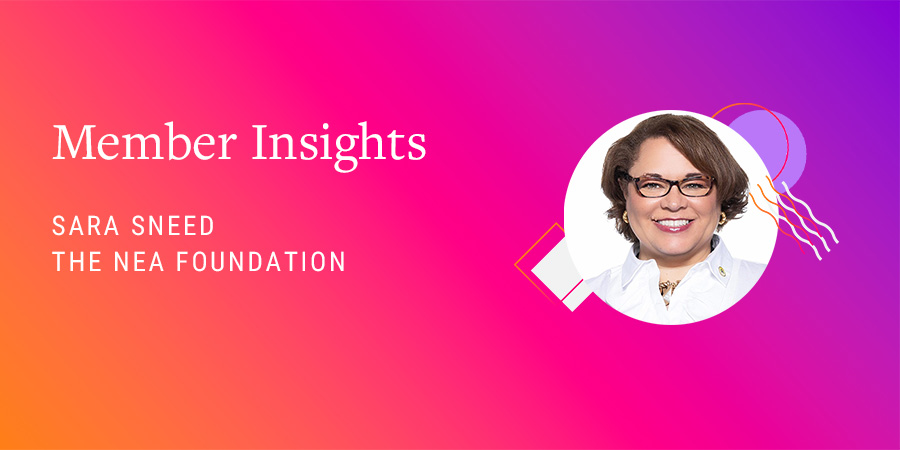Resources
Knowledge begins here
but never ends.
Curated reports, deep research, informational articles, podcasts. Everything you need to stay well
informed in the world of education grantmaking.
Member Insights: Investing in the Deep South

"If you’ve never been on a bus filled with education grantmakers from across the country... let me be the first to tell you: it’s an experience you won’t soon forget." Sara Sneed, president and CEO of The NEA Foundation, shares a journey through history, community and possibility in the Deep South.
What’s It Like to Lead Grantmakers for Education in Tumultuous Times?
Trends in Education Philanthropy: Benchmarking 2025
.
FILTER RESOURCES
SEARCH RESOURCES
Changing the Narrative for Multilingual Learners
A growing number of organizations are eager to learn about narratives and understand the necessity of engaging deep beliefs about immigrants and race in advocating for multilingual learners. This brief unpacks narrative change and explores how philanthropy can support these cutting-edge strategies.
Assistant Principal Advancement to the Principalship: A Guide for School Districts
This guide can help school districts that want to examine and improve how they prepare assistant principals for the principal’s job.
2023 Kids Count Data Book
The 34th edition of the Annie E. Casey Foundation's KIDS COUNT® Data Book describes how the country’s lack of affordable and accessible child care negatively affects children, families and U.S. businesses.
Don’t Dictate, Collaborate: Achieving Equity in Arts Education
This brief offers recommendations for policymakers based on what works in arts learning.
Race, Elite College Admissions, and the Courts: The Pursuit of Racial Equality in Education Retreats to K–12 Schools
The report explores the legal history of racial equity in education, evaluates alternatives to considering race/ethnicity in college admissions, and proposes changes to the K–12 education system and higher education that would improve educational opportunity.
Becoming an Ally: Partnering with Immigrant Families to Promote Student Success
This new report offers specific recommendations to guide educators in overcoming barriers that have prevented them from engaging immigrant families as true partners in supporting their children’s learning.
Submit A Resource
Expand your audience by expanding minds.
We believe in getting research and insights into more hands to support learning for our peers and community. Share your resources that would be useful to education grantmakers.






